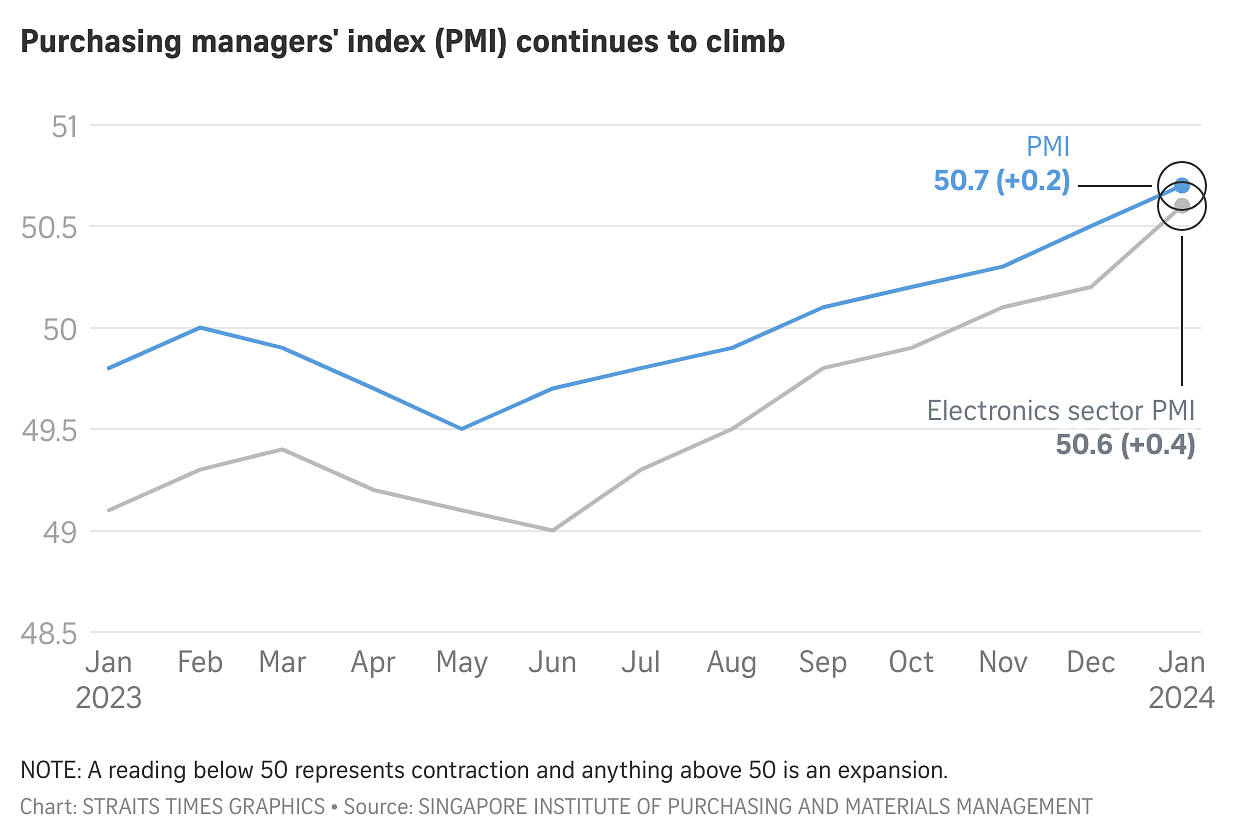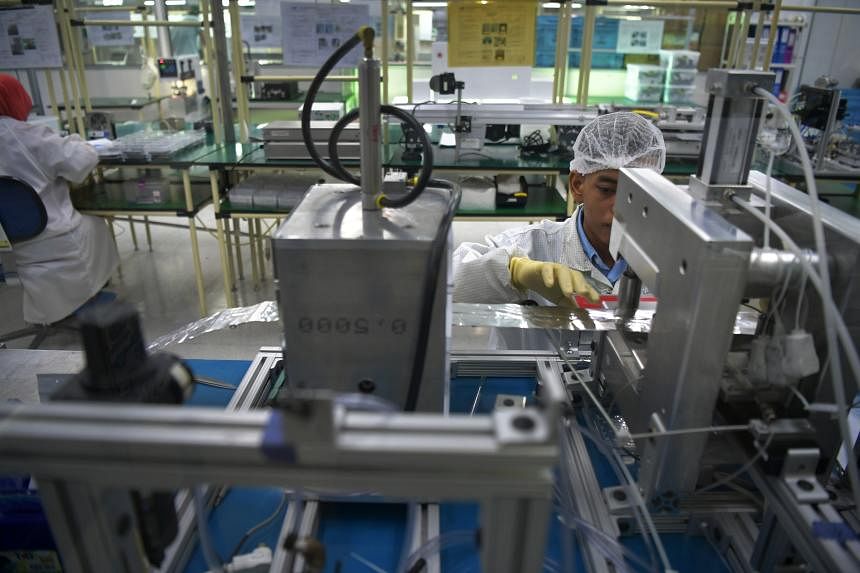SINGAPORE – The manufacturing sector continues to pick up, with activity in January expanding for the fifth successive month to reach a level not seen since December 2021.
The purchasing managers’ index (PMI), a barometer of the sector, rose 0.2 points from December 2023 to 50.7, noted the Singapore Institute of Purchasing and Materials Management (SIPMM) on Feb 2.
A PMI reading above 50 indicates expansion; one below 50 points to contraction.
The PMI for the key electronics sector also increased, up 0.4 points to 50.6, the highest reading since June 2022 and the third month of growth.
SIPMM executive director Stephen Poh said: “The new year augurs well for the manufacturing sector as it remains on the expansion track for the fifth month, despite the ongoing geopolitical risks.
“Local manufacturers face slower supplier deliveries due to disruptions in global supply chains, which in turn affect production downtime. However, they are cautiously optimistic of manufacturing growth for the new year.”
January’s overall PMI reading was attributed to a faster expansion of new orders, new exports and input purchases.
Faster expansion rates were also recorded for the indexes of finished goods, imports, input prices, order backlog and future business.
But the reading was dragged down by slower growth in factory output and employment.
In addition, the supplier deliveries index posted its eighth month of continuous contraction, possibly exacerbated by the disruptions from the Red Sea conflict, said UOB associate economist Jester Koh.
Professor Lawrence Loh, director at the National University of Singapore Business School’s Centre for Governance and Sustainability, said the latest PMI shows a sturdy momentum of economic performance, but said some uncertainties remain in critical areas like employment and factory output.
The electronics sector PMI reading for January was attributed to a faster expansion rate in the indexes of electronic new orders, new exports, employment and input purchases.
UOB’s Mr Koh noted that the future business index for the sector also improved, possibly supported by a boost in demand for chips and electronic parts for data centres, driven by the trends in artificial intelligence and cloud computing.
But electronics firms also saw a contraction in factory output, which suggests a potential setback that needs to be closely watched in tandem with a decline in supplier delivery, said OCBC Bank chief economist Selena Ling.
“Given the tensions in the Red Sea, it is possible that further delays in supplier deliveries could become a potential chokepoint if unresolved. At this juncture, geopolitical uncertainties continue to exert an influence on global supply chain recalibrations,” she added.

The overall January PMI supports analyst views that better prospects are in store for manufacturing in 2024, said DBS Bank economist Chua Han Teng, who warned that the factory improvement is likely to be gradual and fragile.
“The global economic environment remains uncertain, due to high interest rates in advanced economies, bumpy recovery in China and lingering geopolitical tensions that could still disrupt supply chains,” he said.
He noted that the electronics cluster is turning around alongside the global semiconductor cycle, adding: “Yet the recovery appears choppy, with electronics factory production still yet to enter into sustained expansion, even as the contraction is modest and not as weak as in mid-2023.”
UOB’s Mr Koh said the year-on-year recovery in industrial production in 2024 will be partly driven by base effects, given the downturn in 2023.
He also noted that export demand in the first half of 2024 remains subdued given high interest rates in the United States and Europe and the ongoing effects of China’s property market downturn, although a broader recovery in manufacturing could emerge around mid-2024.


